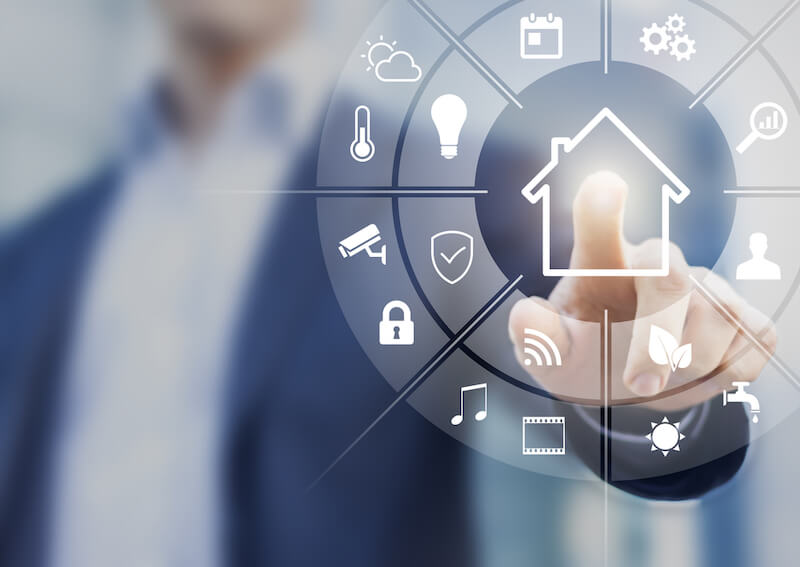The term ‘smart technology’ signifies devices, systems, or solutions that operate interactively and autonomously. This technology can carry out tasks independently, learn from user inputs and interactions, and converse with humans or other smart devices. These characteristics impart a compelling value proposition that can reshape our lives markedly. In the realm of household management, particularly in the context of enhancing energy efficiency, smart technology has begun to stake a claim. Home energy efficiency generally pertains to minimising wasted energy in households through a gamut of measures, both small and large. As we tread deeper into an era marked by heightened awareness of the repercussions of climate change, understanding how smart technology can improve home energy efficiency becomes vital.
Understanding Home Energy Efficiency

Broadly, home energy efficiency refers to the use of less energy to perform household tasks, which results in less energy wastage and, essentially, savings on energy costs. It has multifarious benefits – reduced utility bills, enhanced indoor comfort, and lower carbon emissions, to name a few.
There are several practises one can adopt to enhance home energy efficiency. These can be as simple as staying vigilant about turning off lights when not in operation and unplugging appliances when idle, or as extensive as procuring energy-efficient appliances, improving insulation, or installing solar panels. Despite these commonly known strategies, consistently maintaining energy efficiency may present challenges. These can originate primarily from the lack of advanced, energy-efficient features in older homes, or a relative unawareness about best practices for energy savings.
The Emergence of Smart Technology
Enabled by meteoric advancements in digital technology over the last few decades, smart technology has emerged as a transformative force in every sphere, residential or otherwise. In the context of home energy efficiency, several applications of smart technology present themselves. The most prominent among these include smart thermostats, smart lighting solutions, and energy monitoring devices. These products find utility in everyday life, redefining the nature of residential living and prompting us to interact differently with our home environment.
The integration of smart technology into households doesn’t merely provide unmatched convenience and flexibility over our living spaces but also delivers tangible enhancements in energy efficiency.
Smart Technology and Home Energy Efficiency
One doesn’t require much persuasion to accept that smart technology promotes excellent home energy efficiency. Take a smart thermostat, for instance, which learns your behaviours, habits, and preferences over time. It regulates the heating and cooling of your home optimally, and that contributes to energy savings. Similarly, a smart lighting system can feature motion sensors that dim or switch off lights when no activity is taking place in a room, thereby reducing idle energy usage.
The role of smart technologies like these in improving energy efficiency has attracted considerable attention and interest. Case studies galore depict homes that have experienced substantial reductions in their energy consumption and, consequently, their energy bills, following the introduction of smart devices.
Addressing the Challenges of Implementing Smart Technology for Energy Efficiency
Despite the clear benefits and aspirations, the practicality of implementing smart technology for energy management can throw up several challenges. Homeowners may encounter compatibility issues with energy distribution and existing devices. Even installation complexities and relatively high upfront costs can be stifling. A feasible solution to overcome these challenges involves consulting energy-saving experts who can provide valuable insights and effective resolutions.
Another critical aspect to bear in mind is cost-effectiveness. Assessing it needs an understanding that extends beyond immediate costs. The reduction in energy bills over the long term can outweigh the initial installation expenses, making smart technology a prudent investment over an extended period.

The Future of Smart Technology in Home Energy Efficiency
As we look towards the future, one can envisage smart technology playing a more significant and sophisticated role in home energy efficiency. Technological advancements could lead to the development of new materials for construction that integrate smart technologies, AI-powered systems for comprehensive energy management, and even devices operated by renewable energy sources like kinetic energy.
These advancements will inevitably bring transformations on a broad scale, impacting our households and the energy industry. As the world continues its march towards a more sustainable future, the adoption of these energy-efficient technologies becomes not just a desirable aspect but also a necessary course of action.
Conclusion
In conclusion, it’s clear that smart technology’s contribution to home energy efficiency is significant. It promotes more mindful and controlled utilisation of household energy. Although there are prospective challenges related to installation, maintenance, and technology upgrades, consulting with experts can help navigate most hurdles successfully. The future of smart technology holds great promise for driving more pervasive energy efficiencies at home. Ensuring continued research, increased public awareness and widespread adoption can provide the bedrock for a more sustainable and energy-conscious way of living. Future generations will thank us for it.






